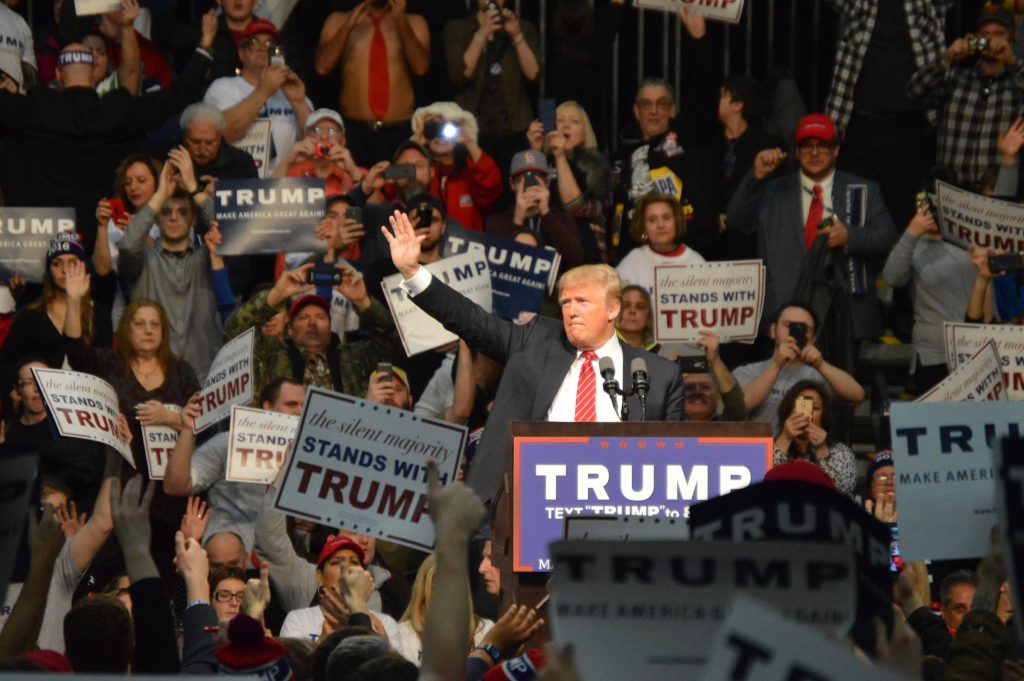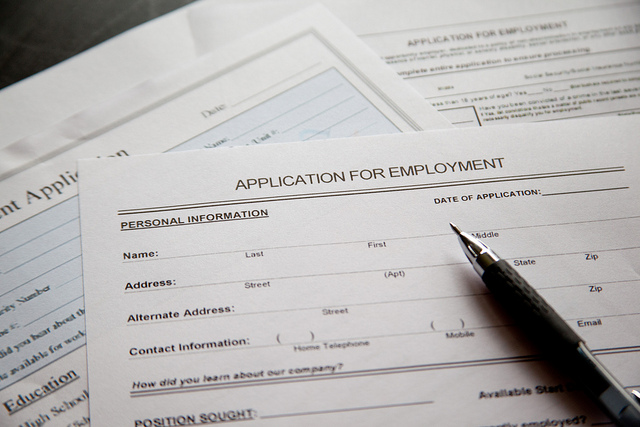Men Without A Voice: How A Changing Economy Affects 2016 Election
How is long-term unemployment playing into personal and political frustrations?

Even if Donald Trump falters in Tuesday’s Indiana primary, many Republicans have come to grips with the idea that ‘The Donald’ is likely going to be their party’s presidential nominee. What began as a treasure trove of material for comedians has morphed into a harsh reality and has left many asking, “how can this be?”
Who are Donald Trump’s supporters? The answer is pretty straight forward. They are people who feel they don’t have a political voice.
Derek Thompson, a senior editor at The Atlantic, has written several pieces on Trump, his supporters and the 2016 presidential campaign. He joins Detroit Today host Stephen Henderson to talk about those articles.
According to Thompson’s article, “Who Are Donald Trump’s Supporters, Really?”, there are four features of Trump’s constituency. They didn’t go to college. They don’t think they have a political voice. They want to wage an interior war against outsiders. And the live in parts of the country with racial resentment.
Thompson writes that voters who agreed with the statement “people like me don’t have any say about what the government does” were 86.5 percent more likely to prefer Trump, according to a survey from RAND Corporation.
“This feeling of powerlessness and voicelessness was a much better predictor of Trump support than age, race, college attainment, income, attitudes towards Muslims, illegal immigrants, or Hispanic identity,” Thompson writes in the article.
Thompson tells Henderson he’s heard some say that Donald Trump’s political rise is an economic phenomenon. Others says no, this more about racial resentment. “I think it’s about both,” he says.
Economic frustration and racial resentment “are coming together in a noxious stew,” in this election, says Thompson.
Henderson also spoke with Gregory Pitoniak, CEO of the Southeast Michigan Community Alliance (SEMCA), about how long term unemployment is affecting people’s psyches and political leanings in 2016.
The unemployment rate in Michigan and nationwide has been declining in recent years. We hear a lot about it from politicians in power hoping to bolster their economic records. But long term unemployment is still a problem for about 30 percent of the people looking for work in Michigan. Lisa Katz of the Workforce Intelligence Network wrote a blog on Crain’s Detroit Business’ website that pointed out just 1-in-20 unemployed Michigan workers qualified as long-term unemployed in the year 2000. That’s compared to 1-in-3 today.
Pitoniak says he sees the effects of this phenomenon regularly as part of the work he does with the Michigan Works! Association.
“They fall into a bit of despair, if you will, as it related to a job search,” says Pitoniak. “So there’s bitterness and frustration and a sense of hopelessness about their opportunities. We’re trying to bring more of the long term unemployed back into our centers to reverse that phenomenon. Because, indeed, I think the psyche needs to be heeled and there has to be a sense of hope and a path.”
“It is indeed a demographic of a mature, white male feeling (like they’re) not benefiting from the recovery,” he says.
To hear the full conversation, click on the audio link above.

